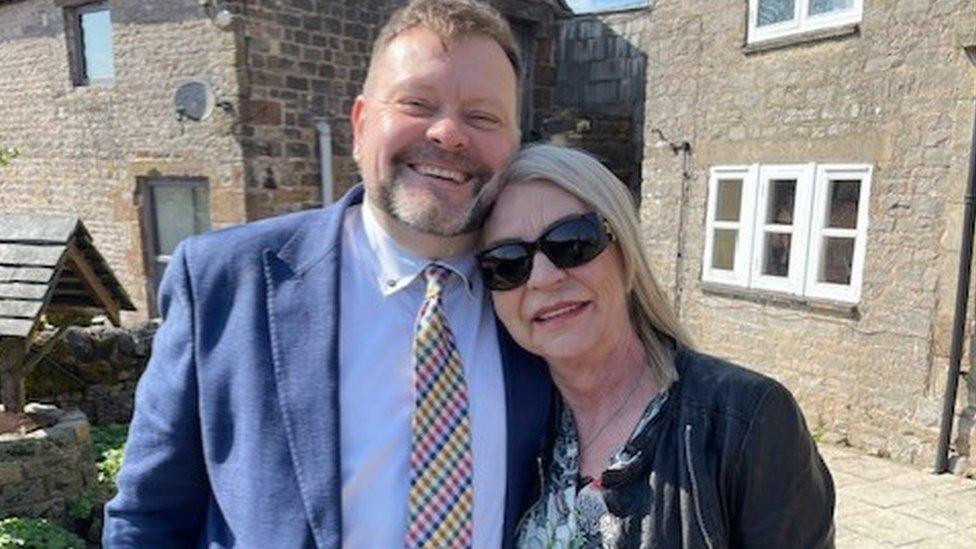Coalville GP who survived cardiac arrest while exercising speaks out
- Published
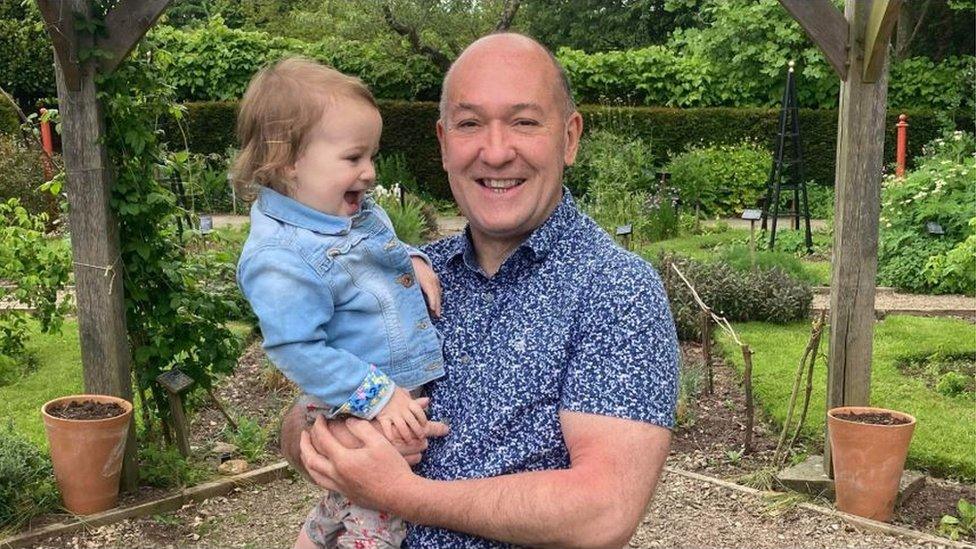
Coalville GP Sean Ottey, with daughter Sapphire, was taken to hospital in just 12 minutes
Two patients who received crucial care from air ambulance crews after suffering a cardiac arrest have spoken of their experiences.
Coalville GP Sean Ottey was taken from Ashby-de-la-Zouch, Leicestershire, to Derby Royal Infirmary in just 12 minutes in August 2020.
Nick Forsyth collapsed during a weekly five-a-side match in January 2019 in Derby when a clot blocked his artery.
The cases are being highlighted as part of Restart a Heart Day on Monday.
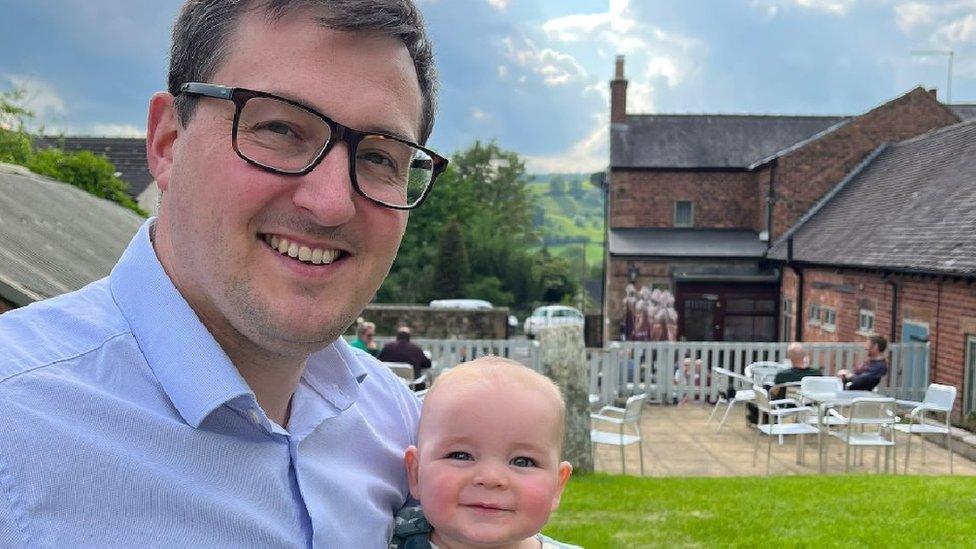
Nick Forsyth with son Harry, had a cardiac arrest while playing with working colleagues
The day is a way of highlighting the importance of CPR and defibrillation, along with speed of further treatment.
Mr Forsyth, now 32, was playing with working colleagues when he suffered a heart attack and then cardiac arrest.
He said: "One of the people I work with is a trained first aider and I'm told that they started doing CPR on me.
"There was also a defibrillator at the leisure centre which was used on me".
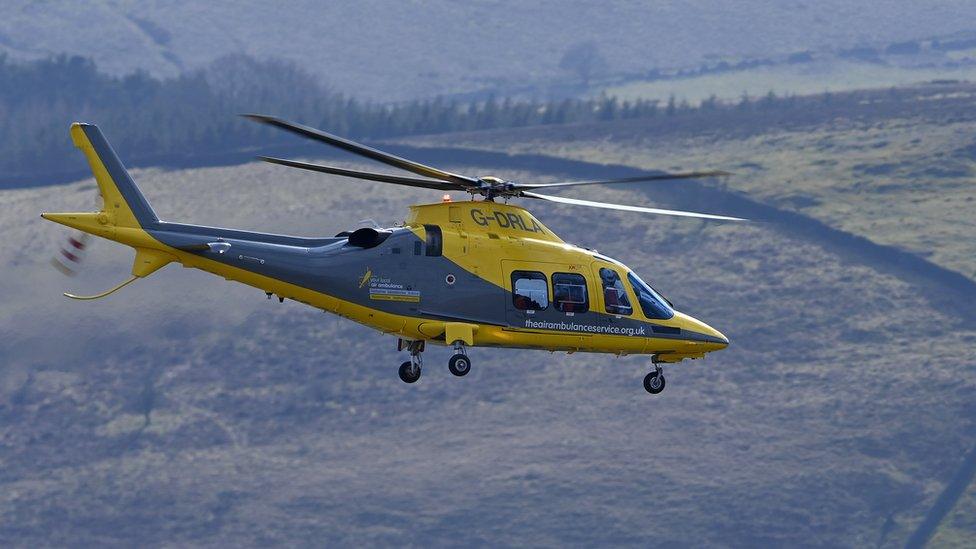
Air ambulances provide "exceptional critical care" in saving heart patients, said the service
The Derbyshire, Leicestershire and Rutland Air Ambulance (DLRAA) attended, with its doctor then going in a land ambulance to Royal Derby Hospital where Mr Forsyth was fitted with a stent.
"I'll always be incredibly grateful for the help that I received from the air ambulance and feel incredibly impressed that all the stops were pulled out to help me", he said.
"I also hope my story inspires anybody who doesn't know how to do CPR to find out."
Mr Ottey, 56, was in his regular exercise class and "felt absolutely fine" before his emergency.
"I remember doing a backward lunge and the next thing I was waking up in intensive care," he said.
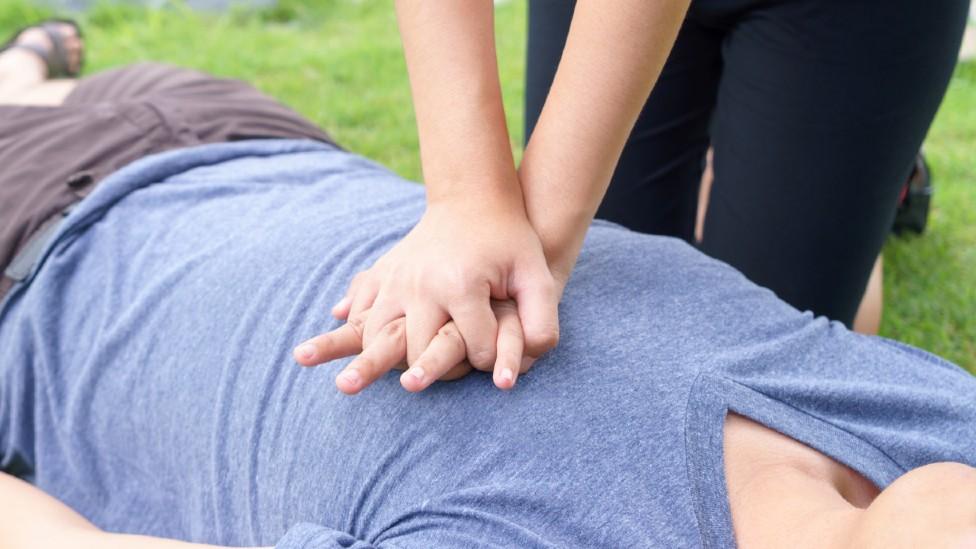
Restart a Heart Day encourages people to learn CPR and how to use a defibrillator
A family history of heart problems meant Mr Ottey knows he was lucky to be somewhere with trained staff who did did CPR and called the Warwickshire and Northamptonshire Air Ambulance.
"The air ambulance critical care doctor gave me drugs which helped my condition and the speedy transfer to hospital was crucial in the chain of events that saved my life.
"If I had a cardiac arrest when I was out walking on my own in the middle of nowhere the outcome would have been completely different,"he said.
He spent over two weeks in hospital - 48 hours in an induced coma - and had an implantable cardioverter defibrillator (ICD) and stent fitted.
DLRAA doctor and clinical lead, Matthew Wyse said: "The best chance of survival for a cardiac arrest recognises there is a chain of survival that involves dialling 999 for help, good CPR, using a defibrillator to shock the heart and excellent critical care to support the patient until they recover.
"The team from DLRAA have a role to play at every step in the chain of survival but especially in providing exceptional critical care at the scene of an incident."
It is estimated more than 30,000 out-of-hospital cardiac arrests happen every year in the UK, and less than one in 10 people survive.
Restart a Heart Day - led by the Resuscitation Council UK - is highlighting the importance of learning CPR and actively promoting the use of public access defibrillators, to greatly increase the chances of survival following a cardiac arrest.

Follow BBC East Midlands on Facebook, external, on X, external, or on Instagram, external. Send your story ideas to eastmidsnews@bbc.co.uk, external.
Related topics
- Published14 July 2023
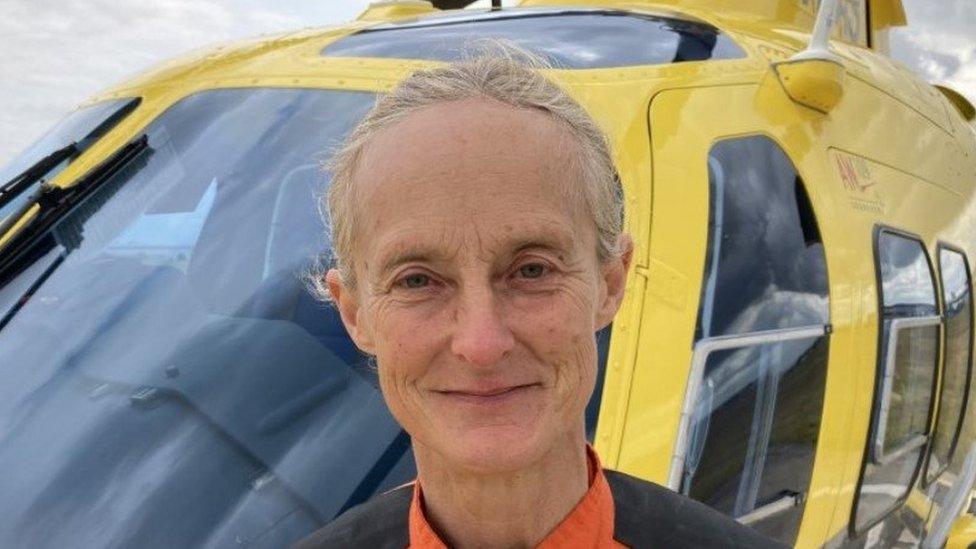
- Published15 May 2022
